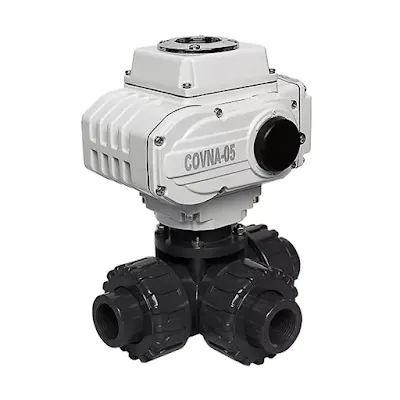Three-way valves in HVAC
1. What are three-way valves and how do they work in HVAC systems?
Three-way valves are used in HVAC systems to control the flow of chilled water. The valve has three ports: one for the inlet, one for the outlet, and one for the bypass. The valve is opened and closed by a motor, which is controlled by a thermostat. When the thermostat calls for cooling, the motor opens the valve to allow chilled water to flow into the system. When the thermostat calls for heat, the motor closes the valve to stop the flow of chilled water.
2. The benefits of using three-way valves in HVAC systems.
There are several benefits of using three-way valves in HVAC systems, including:
1. Increased Energy Efficiency: Three-way valves can help increase the overall energy efficiency of a heating or cooling system by allowing the system to operate at a lower temperature differential. This can result in reduced energy consumption and lower utility bills.
2. Increased Comfort: Three-way valves can also help improve the comfort of a space by providing more evenly distributed heating or cooling. This can help reduce hot or cold spots within a space and make it more comfortable for occupants.
3. Enhanced System Control: Three-way valves can provide enhanced system control by allowing for more precise temperature control. This can lead to improved indoor air quality and comfort as well as reduced energy consumption.
3. The different types of three-way valves available for HVAC systems.
There are many different types of three-way valves available for HVAC systems. The most common type is the motorized three-way valve. This type of valve is controlled by a motor that turns the valve to the desired position. Other types of three-way valves include manual three-way valves and pneumatic three-way valves.
4. How to properly install and maintain three-way valves in HVAC systems.
1. Check the manufacturer's instructions for specific installation and maintenance recommendations.
2. Lubricate the valve according to the manufacturer's instructions.
3. Test the valve regularly to ensure it is operating properly.
Three-way valves are an important part of HVAC systems. Proper installation and maintenance will ensure that they function properly and last for many years.
Thanks for reading.
HVAC course for beginners
HVAC Global consultant and educator.
Services, books, courses, blog, vlog & much more.
Check out these cool products
Phone cooler, window fan, ceiling fan, Desktop fan, Laptop fan.







The three-way valve is a crucial component in HVAC systems, serving as a versatile tool for regulating fluid flow and managing heating, cooling, and ventilation processes. By providing the ability to control the direction and proportion of fluid flow, three-way valves enhance system efficiency, ensuring optimal temperature and comfort levels in various spaces. Their adaptability and reliability make them an indispensable asset in modern HVAC designs.
ReplyDeletehttps://www.freture.com/